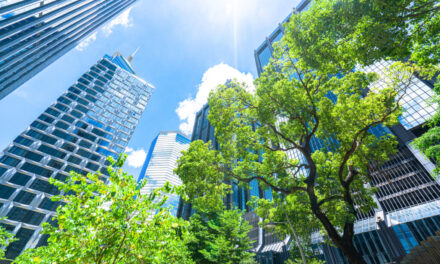Introduction
Investing in multifamily real estate has long been a popular choice for those seeking a stable alternative to the stock market’s unpredictability and a means to diversify their income-generating portfolio. However, this dynamic field is undergoing significant changes that could impact both the risks and rewards for investors. In this article, we’ll delve into four key factors that are reshaping the multifamily real estate landscape and explore how they may affect your investment strategy.
1. Interest Rates: A Double-Edged Sword
Today, we see a high-interest rate environment and soaring prices for single-family homes, leading to extended periods of tenant occupancy and increased profitability for multifamily real estate. This has been a boon for apartment buildings and mixed-use properties with residential units above commercial spaces. However, the question is, can these high-interest rates last? A drop in rates, even by a few percentage points, could trigger a mass exodus of apartment dwellers, leaving investors with mortgages that no longer deliver the returns they currently enjoy. The future of multifamily real estate may hinge on the stability of interest rates.
2. The Changing Landscape of Remote Work
The COVID-19 pandemic ushered in a significant remote work trend, resulting in a surge in office vacancy rates worldwide. However, as businesses aim to cut costs and encourage employees to return to the office, the remote work landscape is in constant flux. A recent spike in COVID-19 cases has tilted the balance back in favor of remote or hybrid work models. Meanwhile, politicians are reevaluating permitting and zoning regulations and tax incentives to repurpose empty office spaces for affordable housing. Multifamily investors should keep a close eye on the ongoing COVID-19 situation, the battle over remote work, and evolving downtown revitalization policies, as they could lead to new opportunities in the sector.
3. The Rise of Innovative Multifamily Amenities
Generations from Gen Z to retiring boomers are driving the demand for innovative multifamily amenities. They share common values, such as a desire to own less, live in smaller spaces, build community, and reduce their environmental footprint. Multifamily developers and investors have responded with inventive amenities:
- Shared-Goods Rooms: These spaces are stocked with items like vacuum cleaners, scooters, and picnic baskets, which tenants can borrow for free, fostering a sense of community.
- Vending Solutions: In cases where retrofitting older buildings is not feasible, multifamily investors are implementing vending machine-like units with household and recreational goods, available for hourly or daily rentals, providing convenience and efficiency.
- Greener Social Spaces: Developers are embracing eco-sustainability projects, from energy-efficient rooftop patios to solar panels with cooling mini-gardens beneath them, pleasing renters across all generations and staying ahead of environmental compliance standards.
Conclusion – Pritish Kumar Halder
In the ever-evolving world of multifamily real estate investments, understanding the nuances of interest rates, remote work dynamics, and the demand for innovative amenities is vital for investors. These factors have the potential to shape the future of the industry, presenting both challenges and opportunities. As you navigate this dynamic landscape, stay informed, remain adaptable, and be prepared to seize the opportunities that arise in this changing market.
Author Introduction: Pritish Kumar Halder
Pritish Kumar Halder is a seasoned real estate expert with years of experience in multifamily real estate investments. He has a keen eye for emerging trends and opportunities in the field and is committed to sharing valuable insights with investors looking to thrive in this ever-changing market.











